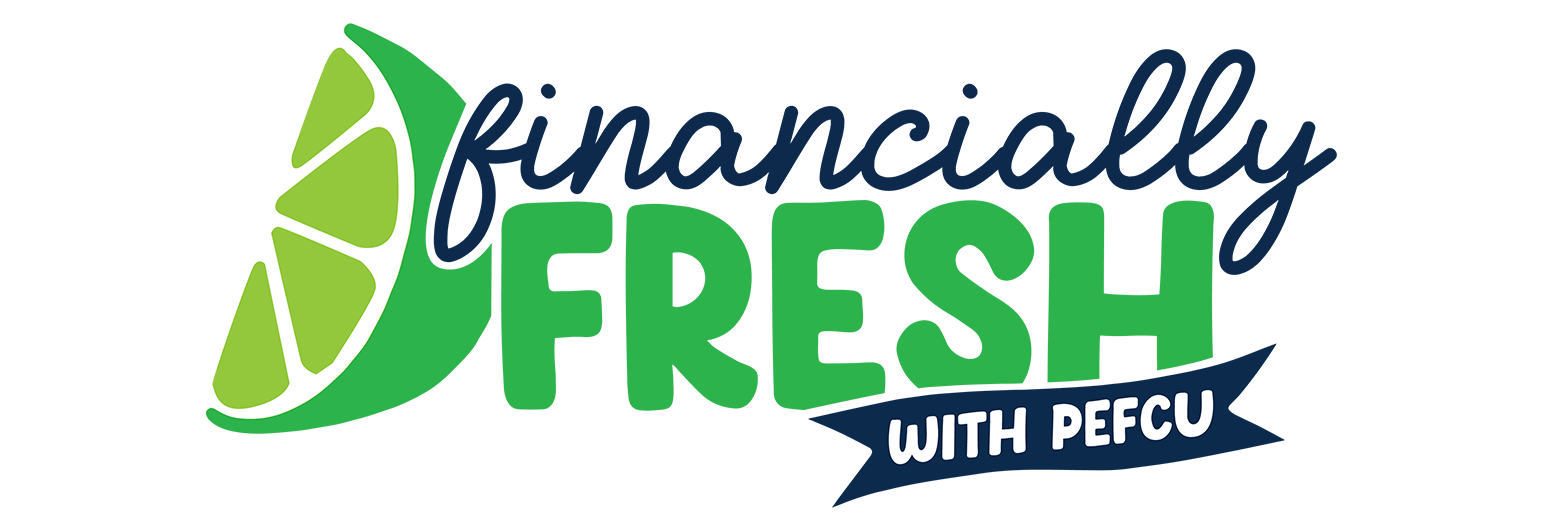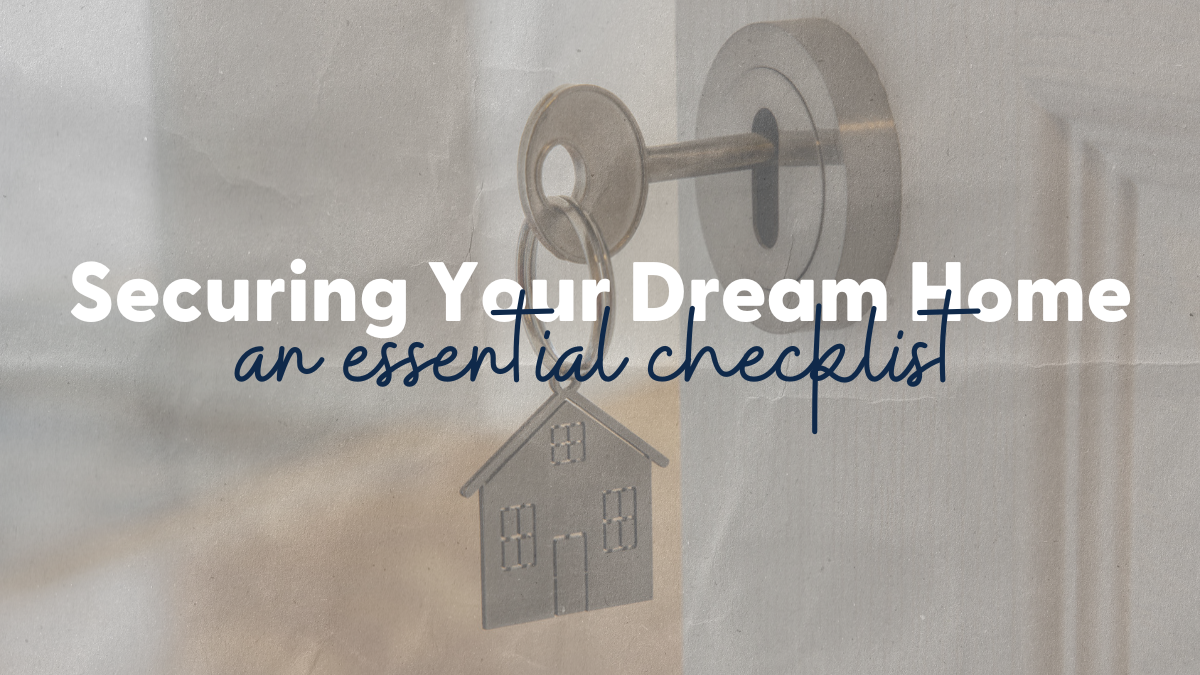December 22, 2023Securing Your Dream Home: An Essential Checklist
Purchasing a home is a significant financial investment that takes time and dedication. While house hunting can be exciting, you need to complete several steps before ensuring you’re ready financially to become a homeowner.
The following guide will walk you through a series of actions you should take to confirm you’re prepared for the long-term commitment of homeownership. Each step will help ensure you have all your financial ducks in a row, leaving no loose ends in your pursuit of becoming a homeowner.
Check Your Credit Score
Financing a home is a long-term commitment, with mortgage terms often extending up to 30 years. Refinancing your home can be costly, so you want to ensure your credit score is as high as possible before applying.
In the months leading up to buying your home, review your current credit score and report. Many websites and apps will provide your score for free. However, you’ll also want to examine your credit report for errors or potential fraud. You can download a free copy of your credit report at www.AnnualCreditReport.com.
Lenders typically price loans based on credit score tiers. That means that even minor improvements can reduce the cost of your home loan. To boost your score quickly, focus on making on-time payments and reducing unsecured debt, such as credit card balances.
Determine How Much You Can Afford
When looking for potential homes, you need to determine how much you can realistically afford to spend. Most people looking to transition from renter to homeowner start with their monthly budget. If they can afford to pay $1,500 a month on rent, a mortgage payment in that range would be ideal.
Their next step is to use an online mortgage calculator to determine a loan amount equal to their budget. However, some online calculators can be misleading. Most only consider the principal and interest portion of your payment (the actual loan payment). Your monthly mortgage payment will also include escrowed items, such as property taxes and homeowner’s insurance.
To help determine how much your actual monthly payment will be, look at other homes recently sold in the area. Websites like www.zillow.com will list the property taxes and estimated insurance. Add these numbers and divide them by 12 to calculate an estimated monthly escrow amount.
Save for Your Down Payment & Closing Costs
One of the greatest barriers to homeownership is the upfront costs. First, you’ll have closing costs, including the appraisal, inspection, title insurance and transfer, attorney fees, and prepaid items like property taxes and insurance.
Typically closing costs range between 3% to 6% of the home’s sale price. For example, if you purchase a $300,000 home, you can expect the closing costs to be between $9,000 and $18,000.
If that isn’t enough, you’ll also have a down payment. The more you can put down, the less you need to borrow – and pay interest on. Depending on your home loan type, down payments can range between 3% to 20% of the sale price. Using the same $300,000 home, your down payment would be between $9,000 and $60,000.
Buying your first home can be challenging as many people need to save for years to cover these upfront costs. After you purchase your first home, subsequent homes become easier to finance because you’ll build equity in the property – which can then be used to offset these upfront costs.
Review Your Mortgage Options
There are various ways to finance a new home. For example, fixed-rate mortgages were popular during the historically low mortgage rates between 2010 and 2020. However, now that interest rates are rising, many find adjustable-rate mortgages (ARMs) more affordable. FHA (Federal Housing Administration) loans are often ideal for first-time homebuyers due to their lower down payment requirements.
The best way to determine which loan type will work best for you is to contact the credit union. Our home loan team will review your financial goals and needs. Then, they’ll recommend which financing option will best suit you.
Plan for Recurring Costs
Homeowners encounter many expenses that renters do not. For example, if an appliance breaks or your roof leaks, there is no landlord to call. Instead, these costs will fall on your lap. Many renters also forget they’ll be responsible for items like landscaping and pest control.
When creating your new-home budget, you’ll want to put money aside monthly into an emergency fund to help cover future home maintenance costs.
Obtain Your Pre-Qualification
Once you have all your financial ducks in a row, it’s time to apply for your home loan.
Sellers frequently require a prequalification letter before accepting your offer on a house. A prequalification letter is a document from PEFCU stating that we are tentatively willing to lend to you, up to a certain loan amount. This document is based on certain assumptions and it is not a guaranteed loan offer, but it lets the seller know that you are likely to be able to get financing. PEFCU will pull your credit report to evaluate your creditworthiness for a prequalification.
NOTE: Just because you’re pre-approved for a specific amount doesn’t mean you should spend it all. For example, if you’re pre-approved for $350,000, start by looking at homes below that, such as $300,000. Many homes will have multiple bidders, and you need to be prepared to go higher if necessary. If you start at your maximum amount, you’ll be outbid quickly.
Hire an Excellent Real Estate Agent
It seems everyone today knows a real estate agent. While you might want to help your friend, you also want to ensure you get the best deal on your new home. Choosing the right real estate agent could mean savings thousands off your home’s price and even more in interest over the life of your loan.
Take time and thoroughly research real estate agents in your area. You’ll want to look for an individual who knows the neighborhoods you’re considering and has experience in various types of markets.
We’re Here to Help!
Deciding to transition from renter to homeowner is exciting. It’s a significant financial milestone that brings a slew of fiscal benefits, such as the ability to build equity in your property. However, you also want to make sure you’re financially prepared for the commitment of being a homeowner.
If you’re interested in learning more about the home-buying process or would like to explore mortgage options, we’re ready to help. Please stop by any of our convenient branch locations or call 800-226-6673 to speak with one of our mortgage experts today.
Each individual’s financial situation is unique, and readers are encouraged to contact PEFCU when seeking financial advice on the products and services discussed. This article is for educational purposes only; the authors assume no legal responsibility for the completeness or accuracy of the contents.


